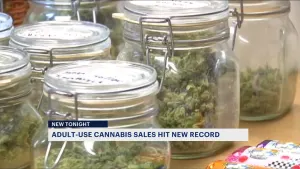More Stories
For the “Lucky 7” marijuana dispensaries who launched Connecticut’s retail cannabis industry Tuesday, it was a day to celebrate. But for most "budding" entrepreneurs, the wait will be much longer.
The state’s new pot industry was designed to help people like Luis Vega.
"I was previously incarcerated and convicted for cannabis growing,” he said.
Vega runs Nautilus Botanicals, which plans to grow adult-use marijuana on a farm in Shelton. But he had to sue the state to get a license.
"If we want to talk about fair, my business is not on the shelves today,” said Vega. “With the first day of sales, it's going to be record number of sales."
Connecticut gives "social equity" applicants their own lottery for most licenses, but critics say the process favors applicants with big, multistate backers. For instance, some backers paid tens of thousands of dollars to flood the lottery with applications.
That left "mom and pops" like Jason Freeman and Aprelle Mintz, who hoped to open a dispensary in Bridgeport, unable to compete.
"We put in a few [applications]. Nothing crazy. About 10,” said Freeman.
Attorney Michelle Bodian is an attorney with Vicente Sederberg LLC representing dozens of Connecticut cannabis applicants. With all the paperwork and security requirements, Bodian said it’s hard for most applicants to succeed without help from backers with more money – and more experience.
"Operational experience, as well as having their SOPs [Standard Operating Procedures] on security, so you're not starting from scratch,” she said. “It does shortcut a lot of time and a lot of money to partner with someone."
Vega's farm is just awaiting final zoning approval. He's frustrated that those with deeper pockets got to go first.
"They got a head-start before everybody else,” he said. “It is getting overshadowed by big corporate money.”
How deep are those pockets? The seven medical dispensaries that launched recreational sales had to pay $1 million each to convert to a hybrid retail license.
More from News 12
0:33
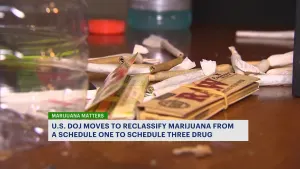
What marijuana reclassification means for the United States
0:44
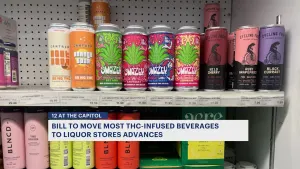
Connecticut lawmakers look to put the lid on unregulated THC seltzers
1:24

Cannabis Contest: The Great Licensing Adventure - A Turn To Tara exclusive
2:12
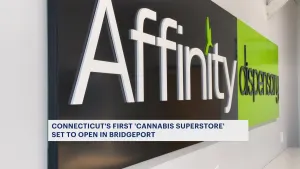
Workers prep for cannabis superstore grand opening in Bridgeport
0:25
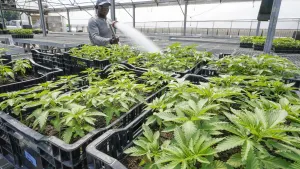
Recreational cannabis in Connecticut rakes in millions of dollars in sales
0:20
